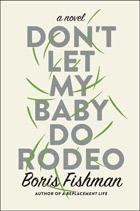“A House For Happy Mothers” by Amulya Malladi (Lake Union Publishing, p 329, $14.95)
Here is another book dealing with a woman, who appears to have it all, except for one thing. In this case it is not a love partner but a child who is missing to complete self- fulfillment. Delivered with mastery by Indian bestseller author, Amulya Malladi, and with engaging characters, A House For Happy Mothers deals with the tough decisions and consequences to have recourse to surrogacy. Priya, one of the main protagonists, a tech guru in Silicon Valley, has been unable to conceive. She joins the “Happy Mothers” in India, where she meets Asha, whose poverty prevents her to send her gifted child to school. Resigned Asha accept to rent her only asset, her womb, to carry Priya’s child. But the story is not a sentimental celebration about rearing a child or an exposé on the conflict arising when foreign worlds collide with each other in order to help each other. It is also a commentary on the best and the worst of the rising Indian surrogacy industry.


